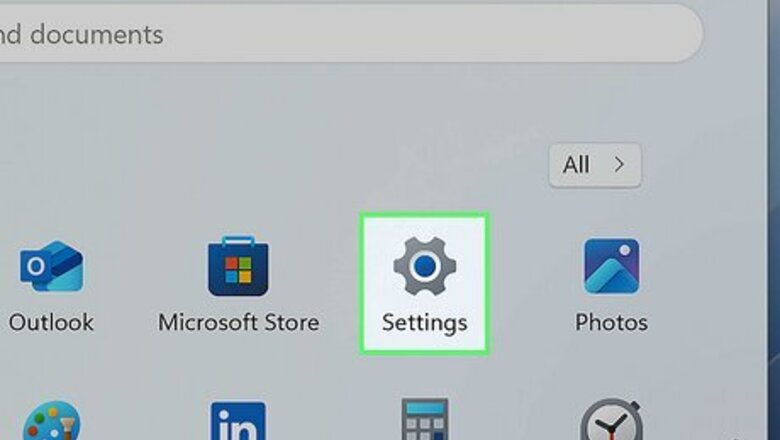
views
Using Settings
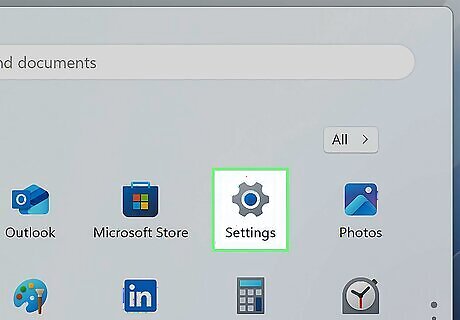
Open the Settings app. There are a few ways to do this: Search for "settings" in the taskbar search bar, then click Settings in the Start menu that pops up. Click the Windows icon in the taskbar, then click Settings. Right-click the Windows icon in the taskbar, then click Settings. Press Ctrl+I.
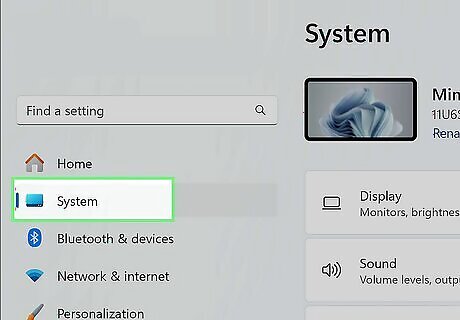
Select System. It's in the left-hand sidebar, at the top of the menu, and it has an icon of a computer.
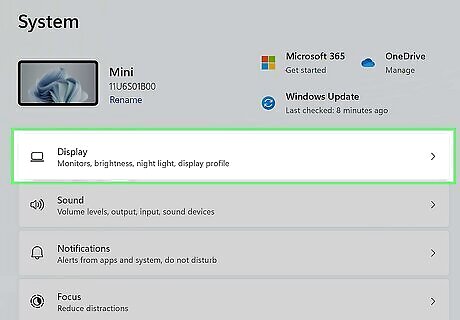
Click Display. It's at the top of the menu and it has an icon of a computer screen.
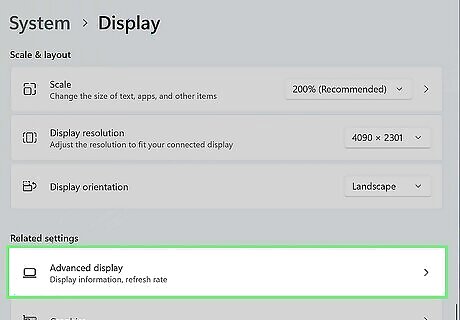
Select Advanced Display. You may have to scroll to see this option.
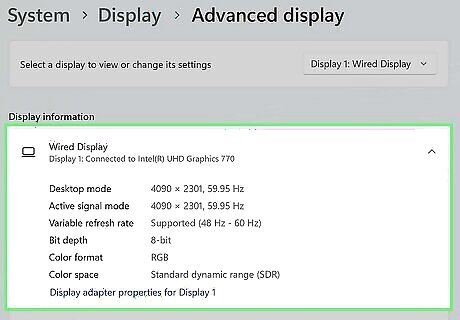
Locate the "Display Information" label. Next to this label, you'll see your graphics card information, including the brand and specific model number.
Using System Information
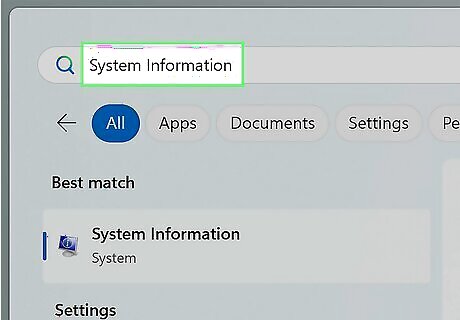
Search for "system information" in the taskbar search bar. Simply type system information into the taskbar search bar.
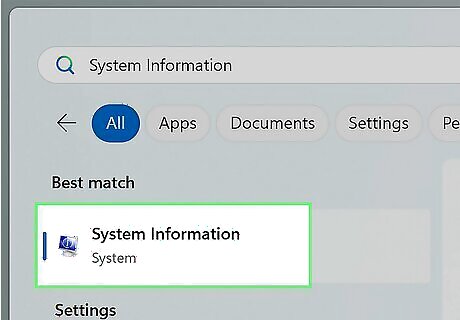
Open System Information. After typing "system information" into the taskbar search bar, click System Information in the Start menu. This opens the System Information control panel, where you can view your PC's specs.
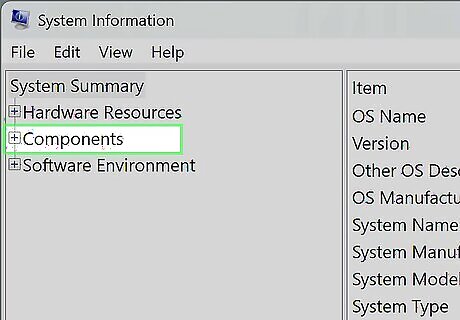
Expand the Components tab. It's in the left-hand sidebar.
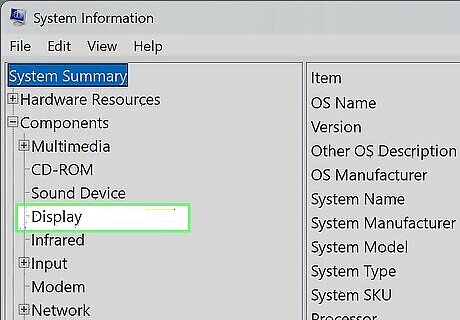
Click Display. It's in the left-hand sidebar, under "Components."
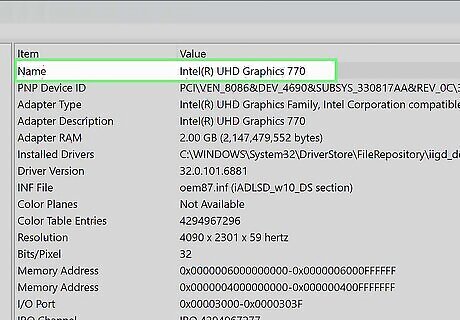
Locate your graphics card. The first line in the main pane of the System Information window will say "Name," and your graphics card brand and model will be listed. The rest of the pane will list more data about your graphics card, including the GPU's RAM and driver version number.
Using DxDiag
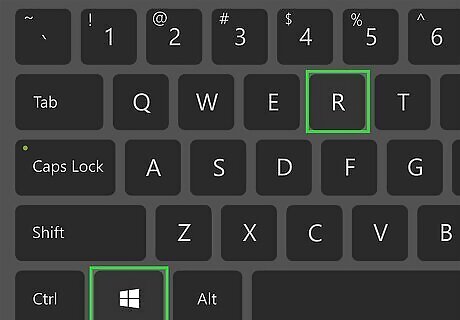
Press ⊞ Win+R. This will open the Run dialog.
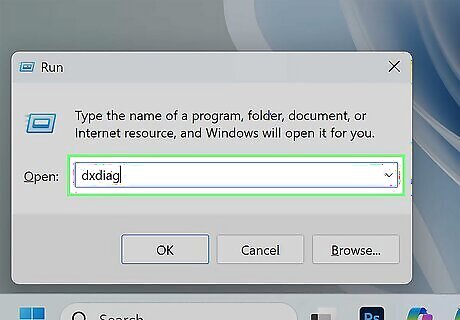
Type dxdiag and press ↵ Enter. This command instructs Windows to open the DirectX Diagnostic Tool, which gives you information about your computer's hardware.
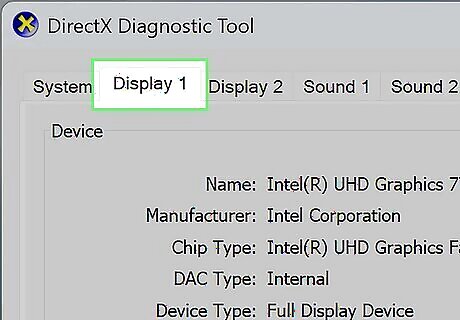
Click the Display tab. If you have more than one monitor, you may have multiple "Display" tabs. If this is the case, any Display tab will work. You must wait for DxDiag to finish loading before you can click on any tabs. The loading bar is at the bottom of the screen, and it may take a few seconds for it to finish.
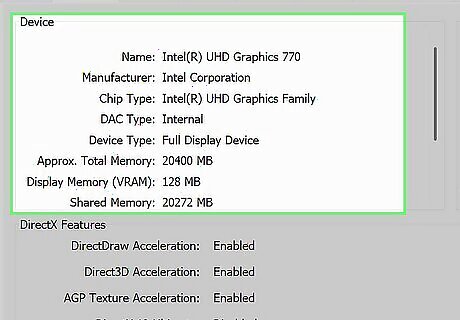
Locate your graphics card. Near the top of the "Display" tab, you'll see a label that says "Name." Your graphics card brand and model will be listed. You'll see other information about your graphics card listed as well, including the GPU's memory.
Using Task Manager
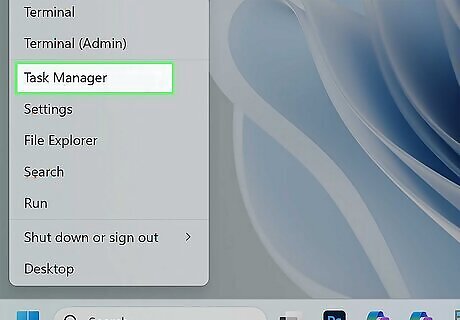
Open the Task Manager. There are a few ways to do this: Press Ctrl+Alt+Del and click Task Manager. Press ⌘ Cmd+⇧ Shift+Esc. Right-click the taskbar and choose Task Manager.
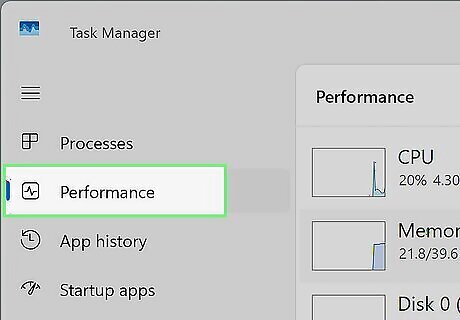
Click on the Performance tab. It's at the top of the window.
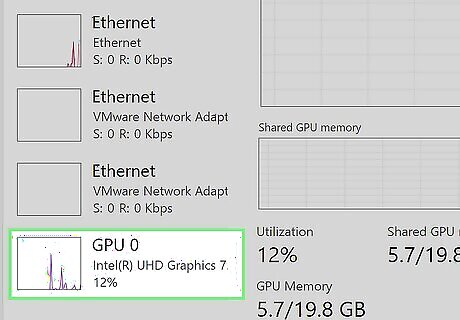
Click on GPU. It's in the left pane.
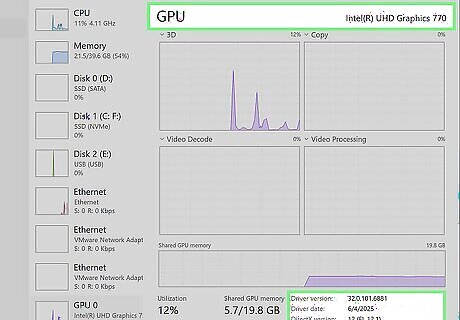
Check your graphics card info. The brand and model of your graphics card will be listed at the top of the window. You can also use the graphs in Task Manager to view your GPU's overall performance.
Using Your GPU Interface
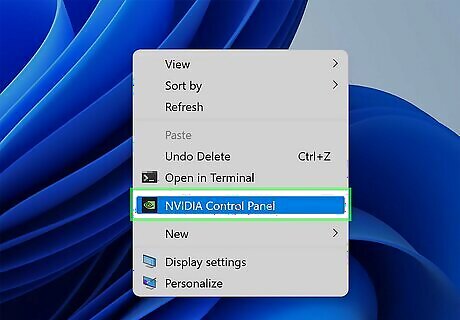
Open your GPU's control panel. Depending on your GPU's model, the control panel will have a different name. If you don't know what brand of GPU you have, it's best to use one of the other methods in this article to locate your GPU's info. NVIDIA: NVIDIA Control Panel AMD: AMD Catalyst Control Center Intel: Intel Driver & Support Assistant
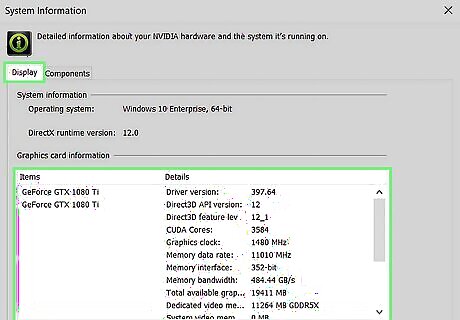
Locate your GPU's name. How you do this varies, depending on your GPU model: NVIDIA: In the NVIDIA Control Panel, click System Information in the lower left-hand corner, then locate your GPU name under the "Items" header in the "Display" tab. AMD: In the AMD Catalyst Control Center, scroll down and click Product Summary under "Information," then click Hardware. The GPU name is next to "Graphics Chipset." Intel: Open the Intel Driver & Support Assistant, then click Devices & Drivers. Expand "Graphics" to see your GPU name.




















Comments
0 comment